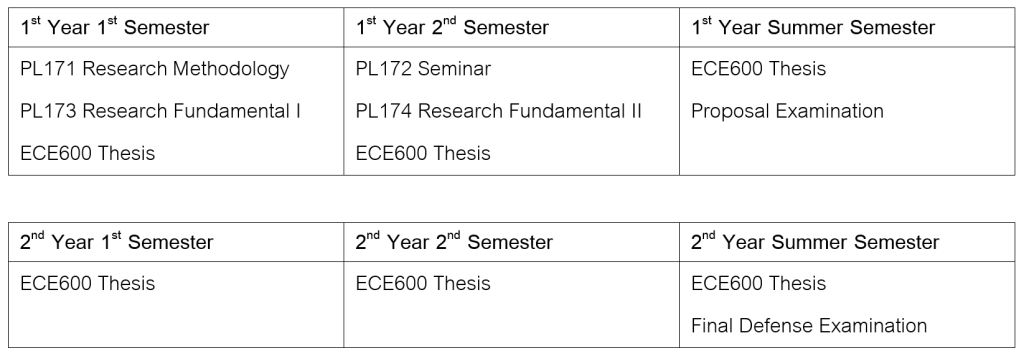M.Eng. in Electrical and Computer Engineering (Research Program)
The core requirement of this program is the completion of a substantial research project, which is written up as a thesis. Students are expected to critically investigate an approved topic and to demonstrate an understanding of research methods appropriate to their field.
Students will be working alongside a team of faculty and researchers at the school of engineering on cutting edge-research. Students will be provided with the background needed and comprehensive skills training. Strong emphases are put on communication skills, research methodology and technical writing as well.
Thesis and Research Topics
- Optical Communications
- Software Defined Communication Systems
- Embedded Systems
- Image Processing
- Nano Technologies
- Sensor Networks
- Multimedia
Graduation Requirements
The students must meet the following requirements to graduate with the M.Eng in Electrical and Computer Engineering
- Completion all the required courses of the program
- Pass all the required Examination (Proposal and Final Defense)
- Pass the English qualification test as specified in the program.
- Have at least one national or international journal (with peer reviews) in well-known database, i.e., ISI, SciMargo, Elsevier, etc.
Curriculum
Master of Engineering in Electrical and Computer Engineering is research-based program. Total credits for the thesis of the program are 36 credits. Even though the program is research program, students are required to take some foundation courses such as research methodology, seminar, or other related courses with no credit. In addition, the students are also required to participate in academic events such as academics conferences, symposium, workshop, seminar, and etc.
Total Credits 36 Credits
- Fundamental and Basic Topics (no credits)
- Research Methodology
- Seminars
- Research Fundamental I
- Research Fundamental II
- Thesis 36 Credits
Semester Period
Semester 1 August – December
Semester 2 January – May
Summer Semester (if applicable) June – July
Program Structure
Course Descriptions
PL 171 Research Methodology
The course focuses on introducing students to research topics and methodology, including critical thinking, scientific responsibilities, academic ethics, scientific writing, and publication. They will be trained on oral and written technical presentations on individual research, journal articles, or design projects
PL 172 Seminars
The course focuses on how to think and analyze systematically for research and presentation. Also, in this class, students may be required to attend seminars and presentations related to their research topics such as conference presentations and workshops. The student will be required to summarize and present the outcome of his/her experience. Several guest speakers and excursions may be arranged for the students in this class. Moreover, knowledge on entrepreneurship may be included.
PL 173 Research Fundamental I
The course focuses on fundamental knowledge related and necessary for conducting research according to research topics of each or group of student(s).
PL 174 Research Fundamental II
The course focuses on more advanced knowledge related and necessary for conducting research according to research topics of each or group of student(s).
ECE 600 Thesis
The course focuses on independent research work under the guidance of the designated student supervisor related to the thesis work. This includes data analysis, thesis proposal preparation, and thesis preparation.
Time Limits
All requirements for the degree must be completed within a minimum period of 2 years and a maximum of 5 years.

